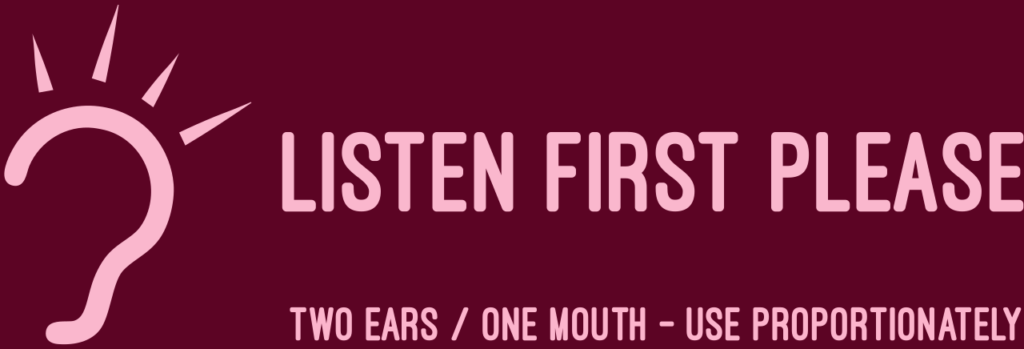Author – Tom Monastra July 2024
“Always keep your ego in check and not be afraid to listen. Listening is a great art form.” Clint Eastwood
Conflict and lack of respect for others has been part of the human experience from the beginning of time. Most of us have struggled to follow the Golden Rule, “treating others as we would like to be treated”. Part of treating people with respect is really listening to what they have to say. When we listen to understand rather than to respond, we honor them, and this creates a climate that is both positive and uplifting. So…why is listening so very difficult and what can be done to improve our ability to hear and understand a different viewpoint? Let’s take a lesson from our Native American brothers and sisters.
Native American are credited with using a “Talking Stick” to help create a setting in which all in attendance at a meeting have an opportunity to make their point of view clear and understandable. Here is how it worked:
- The “Talking Stick” was given to the first person to speak. That person spoke without being interrupted. The speaker was able to talk until he/she felt their point of view was clearly understood. Others in attendance could ask for clarification but could not argue or show disapproval with the speaker.
- Once the first speaker was satisfied that his position had been clearly expressed, he would pass on the “Talking Stick” to the next person. That person then would have the same opportunity to express his/her thoughts. If the person decided not to speak, he/she would pass the “Talking Stick” onto the next person and so on.
Why do you think this process had great benefits in helping reach common ground? I will take a stab at that one.
- Having agreed to the format, emotions are reduced knowing that you will have an opportunity to make your point eventually.
- By sitting quietly while someone else “has the floor” you have the luxury of really listening closely to what is being stated. You are put in a position to Listen to Understand versus Listening to Respond. You are allowed the opportunity for clarification but not for rebuttal. This format does not allow for debate, it is a chance for open communication and understanding.
- This approach to conversation creates a setting where all viewpoints are honored; thereby giving respect to all involved in the process.
Now I ask you to compare this process with one we so often see on television where our congressional representatives (notice I did not say leaders) take every opportunity to “listen to” but then smear their counterpart who happens to sit on the other side of the aisle. When this occurs, they are not listening to understand, they are listening to respond with the intention of a “gotcha”. In my opinion, this is sad and leads to dysfunctional communication and leadership.
When we treat each other with respect and honor, we have a greater opportunity to bridge the divide that separates us on issues. What do you think?


